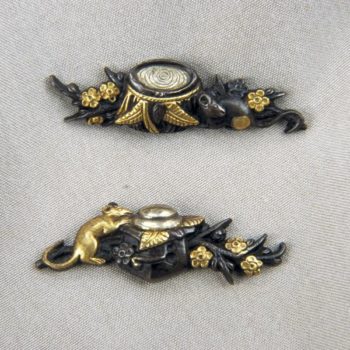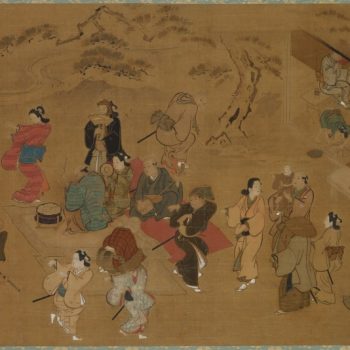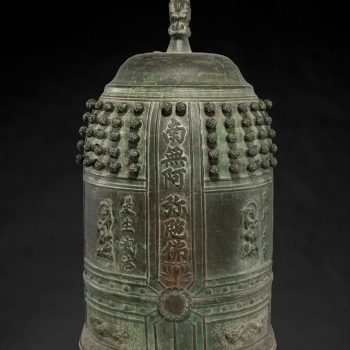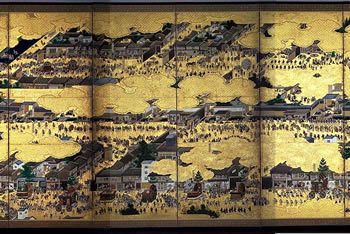About Japan: A Teacher’s Resource
About Japan: A Teacher’s Resource provides a variety of resources about Japan to educators for use in the K-12 classroom. Resources are organized around the themes of culture, environment, globalization, history, Japanese language, and social issues and consist of lesson plans, articles by leading scholars and primary source images and video. Through these classroom ready resources, educators are able to expand and deepen their teaching on Japan.
Teacher Resources from the Denver Art Museum
Explore the Denver Art Museum’s comprehensive collection of lesson plans and resources for educators. Lessons range from 30 to 50 minutes, and are based on objects from the Denver Museum’s Japanese collection. Resources available for all ages and learning levels.
Detecting Tiny Details
Close observation helps students see tiny details in the Grip Enhancers (Menuki) with Rats. They will use these details to engage in different visual arts and movement activities. A video about mochi (one of the objects on the grip enhancers) and activities in Japan around making mochi rounds out the lesson.
Objectives
Students will be able to:
List at least three details they see on each Grip Enhancers (Menuki) with Rats;
Make shapes out of clay based on shapes they see in the grip enhancers;
Describe how the Japanese villagers come together to make mochi and why it’s special for their New Year.
Explore the Freer Sackler Collection
Search, download, and create resources for your classroom using the Freer Sackler digital collection. With more than forty thousand works available for high-resolution download—expanding regularly with new acquisitions—you can explore the Smithsonian’s museums of Asian art from anywhere in the world, whenever you like.
The World of the Japanese Illustrated Book
Search the Pulverer Collection, one of the most outstanding and comprehensive collections of Japanese illustrated books outside Japan.
Learning from Asian Art: Japan
Introduce students to Japanese art and culture as they explore works in the Philadelphia Art Museum’s collection. Each art image is accompanied by background information, a set of looking questions, and related classroom activity suggestions that students can use individually, in small groups, or as a whole class.
Journey to Japan
From simple, Zen-like tea bowls to ornate lacquer boxes the objects in this presentation illustrate Japanese aesthetics and demonstrate both ways of making art particular to Japan, and techniques pioneered elsewhere and perfected in Japan. Functional objects introduce daily life during different time periods. Connections are made between Japanese and Chinese culture and art.
Japanese Festivals and Celebrations
This lesson uses depictions of festivals in Japanese art to examine the cultural emphasis on nature and the seasons.
New Year’s Bell Ringing Ceremony
The annual Bell-Ringing Ceremony follows the Japanese custom in which the end-of-the-year bell (joya no kane) is struck 108 times before midnight on New Year’s Eve, symbolically welcoming the New Year and curbing the 108 mortal desires (bonno), which according to Buddhist belief torment humankind.
The Gion Festival
One of the Three Great Festivals in Japan is the Gion Festival in Kyoto. The parade for this festival is probably the most beautiful and elegant procession in all of Japan. Learn more about the history and customs of the Gion Festival through an investigation of screens.





